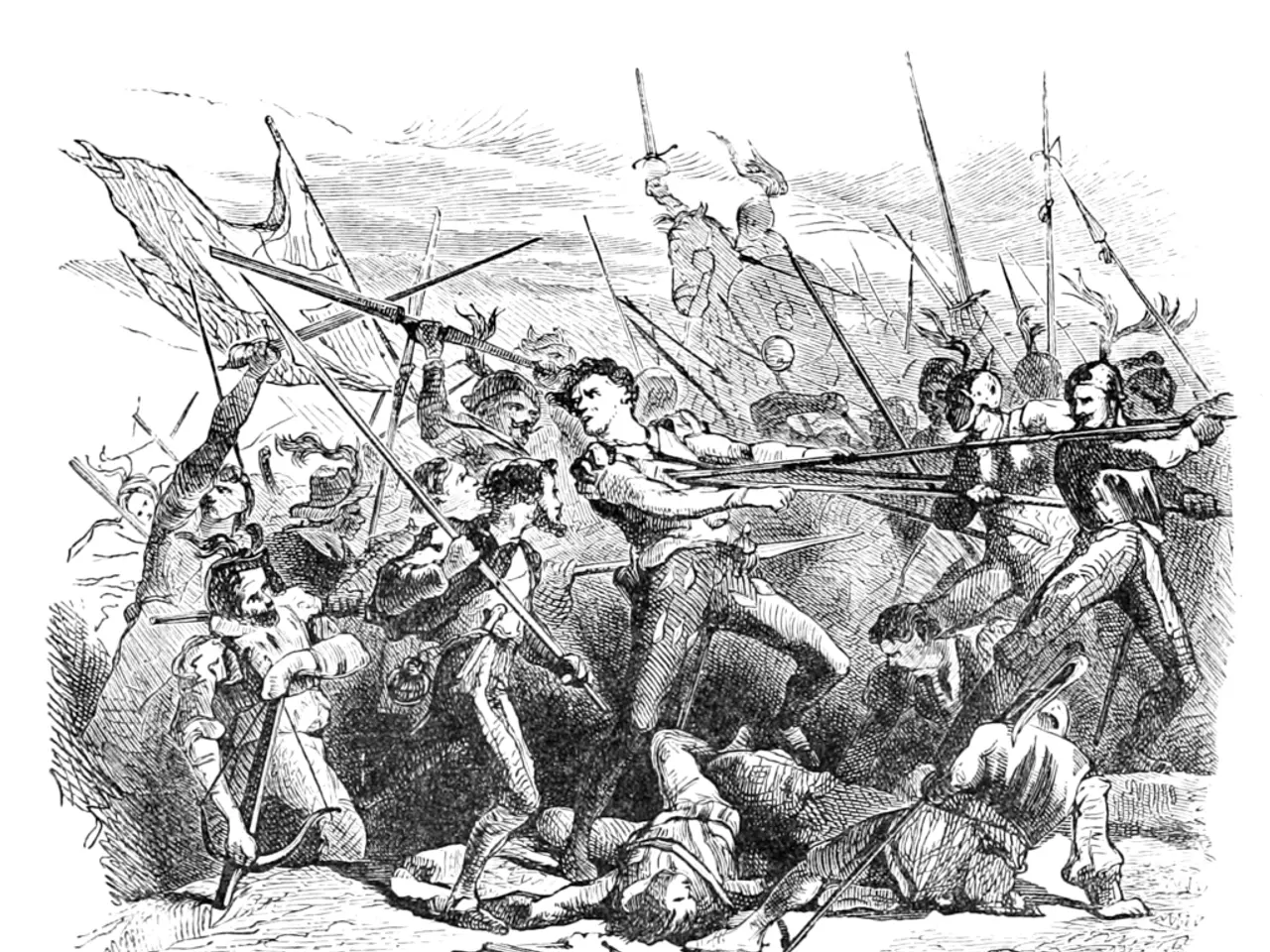Unified Front of Black-Red Coalition: Strengthening Our Bond for 100 Days
Coalition Struggles: Spahn Calls for Unity Amid Internal Disputes
In a recent address, Jens Spahn, the leader of the Union faction, acknowledged the strained relationship within the black-red federal government (CDU-SPD coalition) and called for improved unity. The coalition, which has been in existence for 100 days, has been marked by internal disputes and sluggish progress on key promises, leading to growing calls for improved unity between coalition partners.
The coalition government, formed after the early 2025 federal election following the collapse of the previous coalition, consists of the CDU/CSU and SPD. Despite becoming the largest group in the Bundestag, the CDU/CSU under Chancellor Friedrich Merz has struggled to deliver on core campaign themes such as reducing migration, boosting economic growth, and reforming social welfare without incurring new debt.
One of the recent disputes in the coalition concerns the proposal by SPD Finance Minister Lars Klingbeil to raise taxes on high-income earners to address a 30-billion-euro budget deficit for 2027. This proposal contradicts the coalition agreement (which avoided tax hikes) and has been met with sharp resistance from CDU officials who emphasize the need for fiscal consolidation and cutting social benefits rather than tax increases, creating a public rift within the coalition.
Spahn, however, did not discuss this specific issue in his address. He instead emphasized the commitment of the black-red coalition to success for the good of the country, distinguishing it from the AfD, referring to it as a political restraint against the radical destruction strategy of the AfD.
SPD leader Barbara Bas, on the other hand, described the trust in Spahn as "shaken". Spahn also stated that they must reasonably expect what each partner can deliver and what cannot, and that the coalition must find a sense of what can and must be done together.
Despite these challenges, Spahn described the black-red coalition as neither a love match nor a great societal project, but rather a coalition committed to success. He did not discuss the need for further talks with the SPD, the criticism the Union faction received from the SPD, or the failed election of new constitutional judges in the Bundestag.
As the black-red coalition continues to navigate these internal disputes, it remains to be seen whether they can find the unity necessary to effectively address Germany’s social, economic, and security challenges.
The CDU/CSU, one of the coalition partners in the black-red federal government, is facing a dispute over a proposed tax hike on high-income earners by SPD Finance Minister Lars Klingbeil, contradicting the coalition agreement and causing tension within the government. In his address, Jens Spahn, leader of the Union faction, emphasized the importance of addressing Germany's social, economic, and security challenges, highlighting the need for improved unity among coalition partners and distinguishing it from political opponents, including policy-and-legislation debates and general-news discussions.






